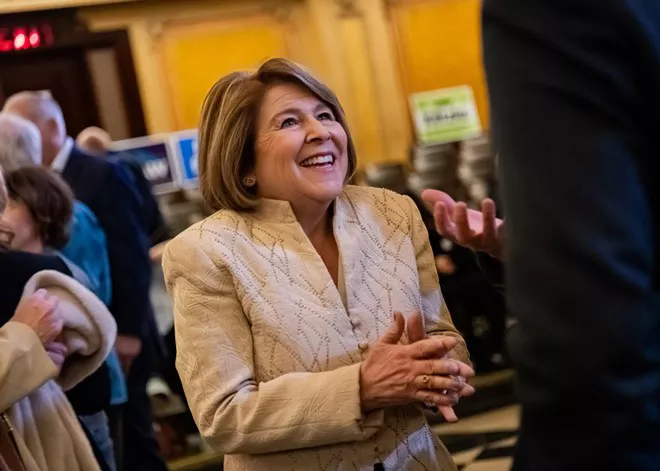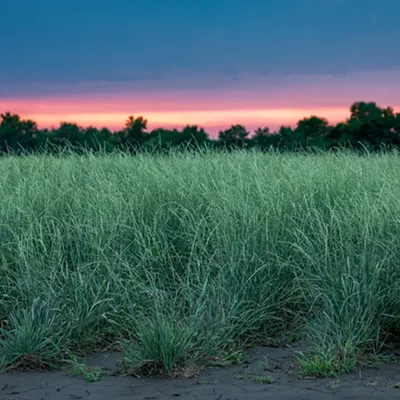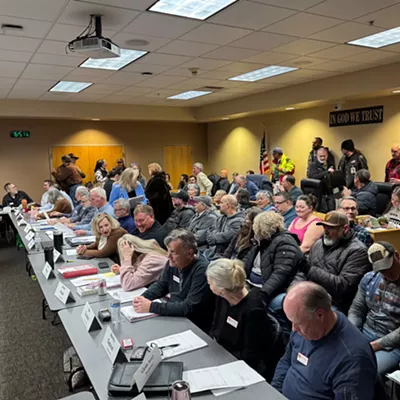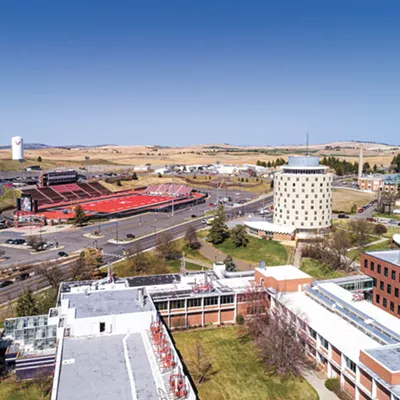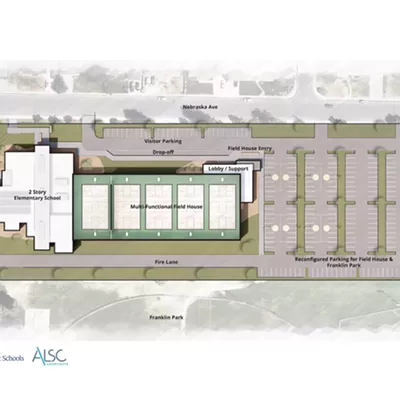In a memo to Spokane City Council members last week, Mayor Lisa Brown warned that the city could be forced to lay off 50 police officers, 30 firefighters and an additional 70 employees across departments if the massive public safety tax levy she is proposing fails. On Monday, council members voted to put the levy on the August ballot. To boost its chances of passing, they also voted to postpone a parks levy that had originally been scheduled for that month. "It's frustrating that we need to pass this," said Council member Kitty Klitzke. "This is a really awful situation, and nobody wants to be here." If passed, the public safety levy would generate $37.5 million annually at a cost of roughly $377 per year for the median Spokane homeowner. The tax is necessary to address "financial shortcomings left by prior leadership over the last three years," Brown wrote in the memo. Roughly two-thirds of the money raised would fill budget gaps and maintain existing police and fire service levels. The rest would cover new citywide and neighborhood investments, the mayor's staff said. Council member Michael Cathcart is sharply opposed. "We actually need to buckle down and look at real cuts," he said Monday, adding that the proposed levy is vague, lacks accountability and is something that he personally would struggle to afford. (NATE SANFORD)
FOOD FOR THOUGHT
Thanks to a U.S. Department of Agriculture grant program, many of Washington's students are eating fresh, local foods in their school meals. In 2022, the USDA announced that Washington would receive $3.6 million as part of the Local Food for Schools Cooperative Agreement Program. With that funding, the state Office of Superintendent of Public Instruction estimates that nearly 850,000 of Washington's 1.1 million students benefited from these meals this school year. "When our students get nutritious local foods in their school meals, they're learning healthy eating habits at the same time they're learning about the food chain," state Superintendent Chris Reykdal says in a news release about the program. The USDA grant program distributed funding to many other state education departments, including $2 million to Oregon, $700,000 to Montana and $4.3 million to Arizona. (COLTON RASANEN)A PAUSE FOR LATAH
Spokane's Latah Valley neighborhood has seen an influx of new development in recent years, but infrastructure hasn't kept up. The neighborhood sits on the outskirts of the city next to highly flammable wooded areas, but it still lacks a permanent fire station. Traffic on U.S. Route 195 has also increased to unsafe levels, according to the state Department of Transportation. After years of sounding the alarm bell, it appears that Latah Valley residents may soon get the new development moratorium they've been requesting. On May 6, Spokane City Council member Paul Dillon is planning to propose a one-year moratorium on new development applications in the Latah/Hangman and adjacent Grandview/Thorpe neighborhoods. During the one-year moratorium, the city would perform an assessment of wildfire risks, establish emergency response procedures, plan the construction of a permanent fire station and potentially modify sections of the municipal code to "protect the health and safety of residents." The idea of a moratorium was widely debated during last year's elections, and some people have expressed concern about restricting housing supply. "We have a housing crisis," Council member Michael Cathcart said Monday. "We should not be talking about moratoriums." Dillon says the moratorium is necessary to address safety issues. (NATE SANFORD)

